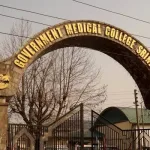A silent heart attack, also known as a silent myocardial infarction, is a type of heart attack that occurs without any obvious symptoms. Or there are symptoms that the victim or his physician do not attribute to the heart . This means that the person experiencing the attack may not be aware that anything is the matter with the heart,, and as a result, they may not seek medical attention.
The danger of silent heart attacks is that they can cause serious damage to the heart muscle without the victim realizing it till it is too late. They may even be fatal, just like a typical heart attack.Studies have shown that people who have had a silent heart attack are at a higher risk of having another heart attack, and they are also more likely to develop heart failure, just like a regular heart attack.
A silent heart attack is difficult to recognize because symptoms are atypical or totally absent.
Symptoms when present include pain or discomfort in the chest or upper abdomen or the jaw, Shortness of breath, Nausea,Vomiting , Lightheadednessor Sweating.These symptoms are non-specific and only an experienced doctor can decipher the problem.
According to the American Heart Association, about 21% of heart attacks are silent and are more likely to occur in women and diabetics.
Risk factors for silent heart attacks are exactly the same as a typical heart attack and include diabetes,high blood pressure, smoking and a sedentary lifestyle. People with a family history of heart disease are also at an increased risk.These diseases and conditions lead to build up of occlusive material called atheroma inside the tiny blood vessels supplying the heart muscle and impede or stop flow of blood. That results in death of a portion of the heart muscle.The heart muscle is the powerhouse of the heart that enables the pumping of blood. Damage to it by lack of blood can lead to weakening of the heart or frank pump failure.
To diagnose a silent heart attack, doctors may use a variety of tests, including an electrocardiogram (ECG), a blood test, and a stress test. An ECG measures the electrical activity of the heart and can detect abnormalities that may indicate a heart attack. A blood test can measure levels of certain proteins or enzymes that are released into the blood when the heart is damaged.
If a silent heart attack is suspected, treatment will typically involve medications to break up blood clots and improve blood flow to the heart, as well as medications to manage heart rhythm and reduce the risk of future heart attacks. In some cases, procedures like angioplasty or bypass surgery may be required to restore the blood flow to starving heart muscle.
To prevent a silent heart attack, it is important to manage the risk factors mentioned above through lifestyle changes. This can include eating a healthy diet, exercising regularly, and not smoking. It is also important to manage underlying conditions such as high blood pressure and diabetes properly under the guidance of a physician.
If you have been diagnosed with heart disease, it is especially important to take your medications as prescribed and to see your doctor regularly for check-ups. This can help identify any potential problems early on and prevent a silent heart attack from occurring and heart from failing.
It is also important to recognize the symptoms of a heart attack and to seek medical attention immediately if you or someone you know may be experiencing one. The earlier a heart attack is treated, the less damage will be done to the heart muscle and the better the chances of a full recovery.
In conclusion, silent heart attacks can be dangerous because they often go unrecognized. By knowing the symptoms and risk factors, and by making lifestyle changes, you can help prevent a silent heart attack and protect your heart health. Talk to your doctor about your risk for a silent heart attack and follow their recommendations to keep your heart healthy.
Dr. Murtaza Ahmad Chishti
Director | Cardio-vascular-thoracic Surgery
Heart & Lung Transplant
Mahatma Gandhi University of Medical Sciences and Technology, Jaipur
Mobile: 9799035131





